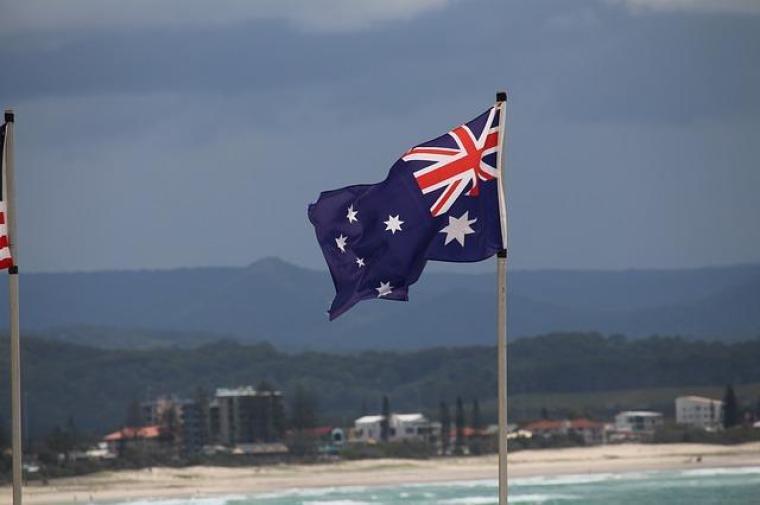
Vote yes, vote no. The current marriage debate in Australia has revealed that we live in an age of competing visions of what society should look like. There is simply such a radical difference in worldview that you must ask the question are there two Australias?
Division and misunderstanding
The vote yes vision proclaims the values of equality, inclusion and tolerance. In their view love is love and the vote no campaign must be motivated by mean-spiritedness and hate. They view the vote no group as the segregationists of our day, stubbornly standing against the onward march of civil rights and a more loving, open and inclusive society.
On the other hand those in the vote no camp have a deeply held vision that the traditional definition of marriage, one woman and one man for life, is a sacred institution that stabilizes and blesses society in profound ways and must be preserved at all costs. They view the vote yes group as misguided, sometimes well-meaning but also often hateful and hypocritical and the opposite of the values of tolerance they loudly claim to uphold.
We have such a culture clash in this country that there seems to be little chance of reconciliation between the two sides of the same sex marriage debate. How can these differences be reconciled in a way that creates peace between the two groups rather than animosity?
Is libertarianism an option?
Reflecting on this problem over the last few days I thought about several years ago when I held a more libertarian viewpoint on the issue of marriage. I thought about how if it was a real option today in Australia it could be a workable compromise.
Libertarianism is a simple philosophy that argues that people should be free to do what they want to do as long as they are not using violence or coercion against any other person's right to do the same. In public policy this means a belief that the government has a minimal role of protecting and enforcing individual rights and liberties.
This philosophy applied to marriage argues that it is not the government's role to define marriage at all. Allowing private institutions to define marriage, the government simply enforces the contractual elements of marriage.
This means that homosexuals would be free to be married by liberal churches or secular celebrants but it would also guarantee that conservative churches, organizations, schools and businesses would be free to practice their beliefs without any interference from the state whatsoever.
However, as high-minded as libertarian ideals are we simply don't live in a libertarian world. The likelihood of this option ever being influential is unlikely.
What I have come to realize is that libertarianism doesn't really work because we don't live in a world of radical individuals. We are part of groups that have common values. It will always be like this because as a reflection of God's trinitarian nature we are created for community. Most of us don't just have visions of our individual lives but also visions of how the collective should be governed.
It is about power
The marriage debate has two competing visions of what the collective should look like and how it should be governed.
This debate is essentially about which vision of marriage will be imposed on the whole of society. It is not really about rights because gay couples already basically have equal rights to married couples and where they don't it can easily be achieved. If it was really about freedom then the radical LGBT activists would simply fight for a more libertarian view of marriage policy.
It is noble that many Christians don't want to impose their values on the whole society but someone's view will always be imposed on society. If not ours then it will be someone else's. It would be nice to say let's have a world without power but because it will always exist, someone has to have power and influence over society.
I voted no because I want churches and conservative organizations to be free to express and practice their views without discrimination and I don't want the government to impose a view of marriage that I don't support. Maybe the libertarian position would have been a nice compromise but that is not the world we live in and since this is a competition of imposing visions on the whole of society, I must go with the one that reflects my own values and beliefs.
Where is all this leading?
The marriage debate in Australia has revealed that there are really two Australias. Where do we go when the country is so divided?
Regardless of the outcome of this current plebiscite there will not be true peace or unity in Australia. The radical difference of opinion will still exist regardless of whose vision wins power.
What's happening currently in Australia is a reflection of what is happening all around the western world. Look at the radical division over the Trump election in the US. This has led some to muse on ideas like Calexit and the creation of independent states. Could our nation literally become two Australias?
We live in uncertain times. Will the west survive? I hope so but I am not sure. At the end of the day politics can't save us. We must call out to our saviour Jesus Christ.

Conor is from Adelaide, South Australia. He has a history degree from Tabor College and has a gardening business. Conor has played in Christian heavy metal band Synnove. He is involved in Operation Canaan, a ministry that prays and intercedes for the music scene. He loves God, music, reading, traveling and thinking deeply about philosophy and current events in the world.
Conor Ryan’s previous articles may be viewed at www.pressserviceinternational.org/conor-ryan.html